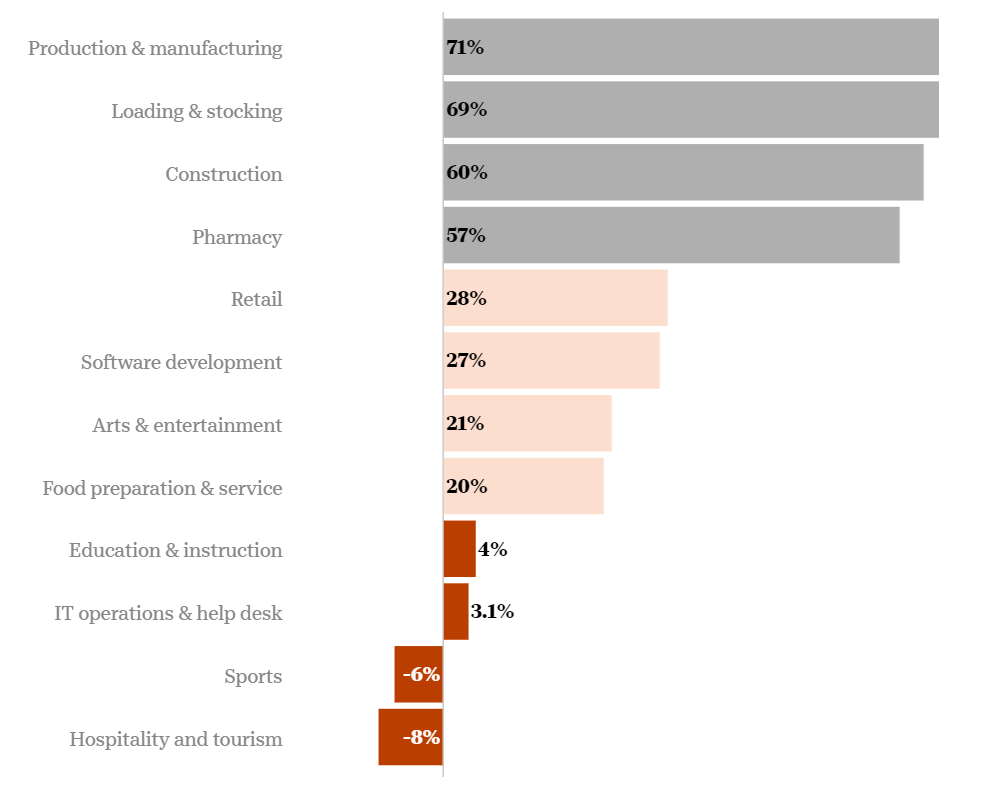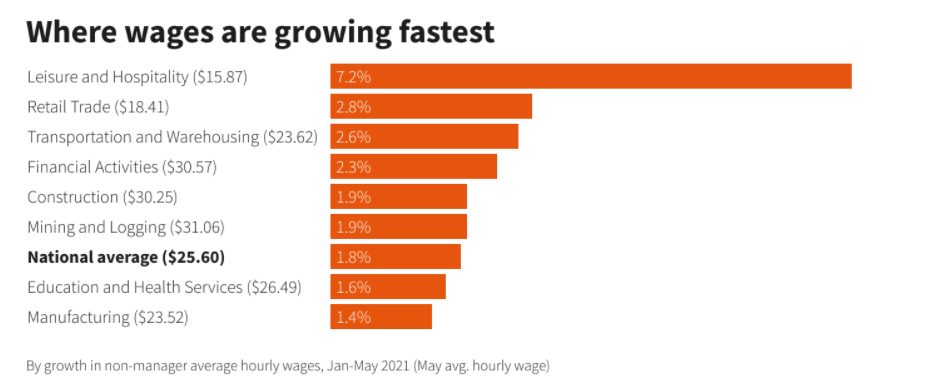With the unemployment rate finally under six percent – the lowest it’s been since March 2020 – we’re seeing businesses begin to open up across all sectors. Retail, leisure, and hospitality were hit hard by this pandemic, but the numbers from May 2021 show an upward trend in hiring. That’s good news. However, these businesses are still facing a major hurdle in attracting workers to the sector.
-
The Current State of Hospitality Hiring
This graph compares the recovery of industries against their position in February 2020. Despite recent changes – and the $28.6 billion allocated to small restaurants and bars in Biden’s ARPA bill – hospitality is still lagging behind. There are a few factors at play here.
The bill also extends unemployment benefits to September at $300 per week. Salaries have to meet or exceed those benefits and stimulus payments to motivate people to return to work.
Young people, who would’ve once been the majority in these roles before the pandemic, have had to find other means of employment. Remote office jobs are in high demand, and many former hospitality employees have moved into this type of work. Construction, manufacturing, and packing goods have also been popular amongst younger workers. On top of all that, under-30s are more willing to take bigger risks with gig economy work and entrepreneurship.
Perhaps most significantly though, the easing of lockdowns country-wide has resulted in a “buyer’s market”. Too many hospitality venues are looking for employees all at once. Employers are raising hourly wages across the board to draw discerning job seekers away from competitors.
-
How to Attract Hospitality Staff

The first and most obvious way to attract hospitality staff is to offer a higher wage. We’ve all heard the calls for the federal minimum wage to be raised to $15 per hour. But did you know the federal minimum wage for US workers who rely on tips has not increased for three decades and stands at just $2.13 an hour?
Although employers must ensure the difference is paid up to the current minimum wage, this means that most tips are not used to boost pay beyond the minimum, but to supplement it.

In the hospitality industry, tipped workers deserve to have a more reliable baseline to make ends meet. The most impactful choice is between raising wages, or paying your existing short-staffed team overtime — though the latter strategy risks burnout.
What if you can’t afford to increase wages, or want to go the extra mile? Well, consider these options:
- Advertise the exceptional levels of health and safety standards for your workplace.
- Promote your company culture and values.
- Call out opportunities for career advancement, and build clear pathways to get there. You could even provide a transparent pay scheme.
- Invest time in training and onboarding, so that less experienced candidates are given the chance to learn on the job.
- Consider starting an inclusive hiring program, and making accommodations to lower the barrier to entry for employment.
- Offer additional benefits such as child care vouchers or free meals.
- Give people the option of set or flexible shifts.
- Provide bonuses for referrals.
- Use an Applicant Tracking System like JazzHR to optimize your hiring process and reach as many people as possible.
Jot down any ideas that stand out from this list — and some of your own — then pick a few to develop and trial. That will give your hiring program a significant advantage over competitors. And, for an in-depth guide to hospitality hiring, look no further than our free franchisee hiring toolkit.







